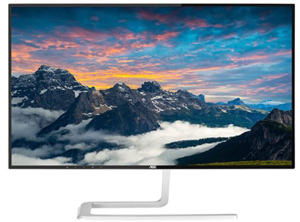The Canalys research group (http://www.canalys.com) says Apple, after reporting stellar results, became the leading worldwide client computer vendor in Q4 2011. Canalys includes iPads in its data, which research groups such as IDC and Gartner don’t.
Apple shipped over 15 million iPads and five million Macs, representing 17% of the total 120 million client computers shipped globally in Q4, notes Canalys. Overall, the total client computer market, including desktops, netbooks, notebooks, and pads grew 16% year-on-year. Excluding pads, the client computer market declined 0.4%. The floods in Thailand, that impacted hard drive assembly plants, caused mild disruption to shipments during the quarter, but the side effects are likely to be felt in the first half of 2012.
Among the other top five computer vendors, only Lenovo managed to increase its market share, by a relatively modest two points, compared to Apple’s six-point gain over the same quarter a year ago. Acer, Dell and HP — the hardest hit — all lost market share. Now the second largest client computer vendor worldwide, HP will struggle to compete with Apple following the end of its Touchpad.
“Currently, HP is pursuing a Windows strategy for its pad portfolio, producing enterprise-focused products, such as the recently launched Slate 2, until the launch of Windows 8,” says Canalys Analyst Tim Coulling. “However, questions remain over Microsoft’s entry into the consumer pad space. While early demonstrations of the Window 8 operating system seem promising, Microsoft must focus its efforts on creating an intuitive user experience that is far less resource intensive.”
Lenovo continued to close the gap on HP, thanks to successful investment outside of core markets. The acquisition of Medion in Germany helped Lenovo double its shipments in Western Europe during the second half of 2011. The vendor’s decision to use Android for enterprise and consumer pads gives it a better opportunity than HP to continue gaining market share.
Dell placed fourth among the top five computer vendors, followed by Acer. Acer’s shipments continued to decline, as a result of the pad’s impact on the netbook market. It did, however, make headlines at the 2012 International Consumer Electronics Show in January, when it revealed its S5 Ultrabook. Unsurprisingly, Acer and other vendors have been quick to announce their support for the new Ultrabook form factor, with the view of driving innovation and renewed customer interest in notebooks.
“We expect Ultrabook volumes to see limited adoption through the first half of 2012, before finally gaining momentum later in the year as price points decline and Intel launches a new line of processors and embarks on an aggressive marketing campaign,” says Canalys Research Analyst Michael Kauh. “In the short term though, vendors will experience more pressure in the netbook and notebook segments, especially with Apple’s annual iPad refresh approaching.”
Pads accounted for 22% of total computer shipments during Q4 2011. In addition to Apple’s strong performance, the Amazon Kindle Fire and the Nook Tablet by Barnes and Noble boosted volumes in the U.S. market, allowing both vendors to claim spots among the top five worldwide pad makers, in second and fifth place respectively.
All regions grew year-on-year with the inclusion of pads. Excluding pads, however, shipments in Europe, Middle East and Africa and North America declined, due to weaker consumer demand in Western Europe and the United States, despite the traditional Q4 sales periods. Vendors and channel partners took a cautious approach to inventory levels in Q4, as many had expected a slow quarter. Notebook volumes grew slightly, at approximately 1% in these regions, but continued their impressive rise in Asia Pacific and Latin America, as more consumers embraced mobile computing.
“The consumerization of IT continues to be a significant disruptive force in the computer industry, but many of the leading vendors have failed to capitalize on the trend to date,” says Coulling. “This year will be a pivotal year for those vendors that were slow to launch pads. It is not just the product that they need to get right, business models are equally important – driving revenues from content delivery can help vendors reach lower price points in a market that is incredibly price sensitive.”




